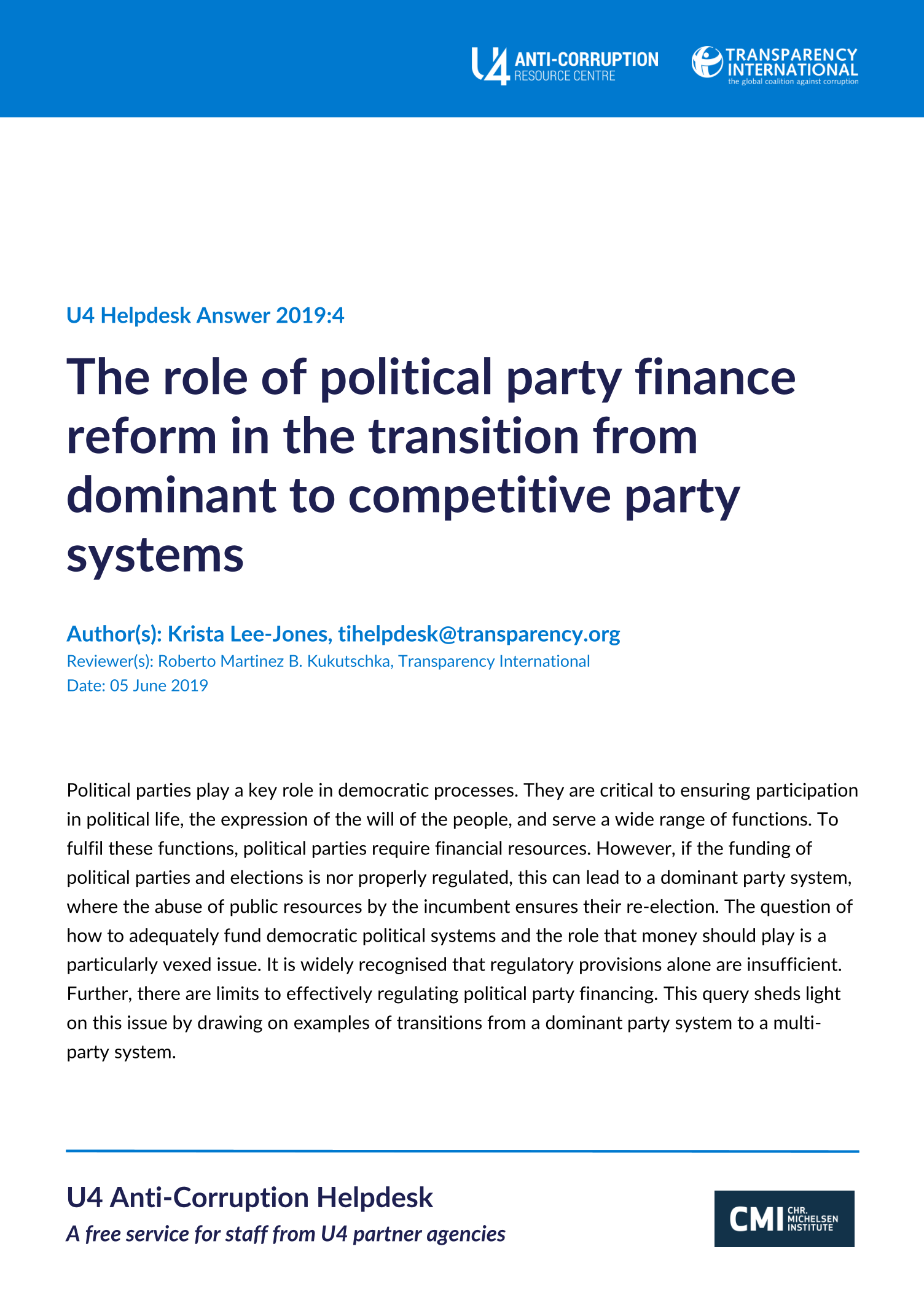Main points
- Transparency in political party financing can play a key role in both reducing corruption and transitioning from a dominant party system to a multi-party system.
- By itself, political party finance regulation is not enough to reduce corruption, undue influence in politics or ending dominant party systems. — Strong oversight and enforcement mechanisms are essential.
- Civil society, the media and other local actors can be allies in garnering support for legislative change.


